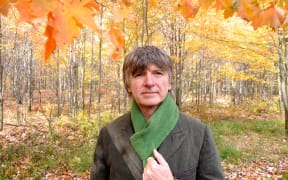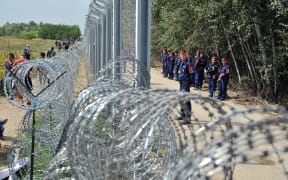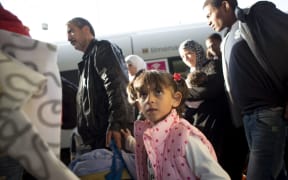New routes are being found through eastern Europe as migrants and refugees negotiate the shifting political sands.
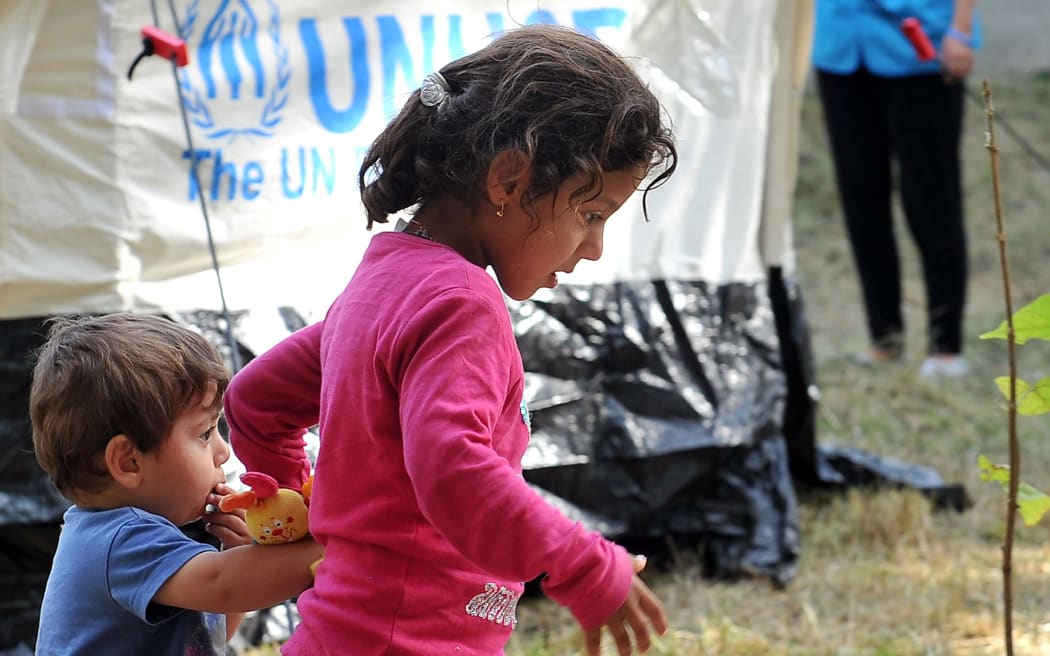
Migrant children at a refugee transit centre in Croatia. Photo: AFP
It is becoming a race against the changing political mood of Europe's many nation states, with new rules marking the map of Europe.
Thousands have passed into Croatia over the past few days, and Croatian police guided them past closed border crossings and onto buses bound for Hungary and Slovenia.
The Croatian prime minister has said that Croatia will continue ferrying migrants towards the Hungarian border regardless of the fact that there is no mutual agreement between the two countries on the matter.
Hungary has accused Croatia of violating international law and colluding with people-smugglers.
The Hungarian government said a train carrying more than 1000 migrants and nearly 40 Croatian police officers arrived unannounced.
In Slovenia police have used tear gas to disperse a group of migrants trying to cross from Croatia.
Prime Minister Miro Cerar said his country would allow refugees to cross its territory in exceptional circumstances.
Borderless Schengen area tested
Controls between European countries were removed three decades ago to free the movement of trade and people under the Schengen Agreement.
An administrator at the European Commission, Yves Bertoncini, described the present situation as a crash test for Schengen's open borders.
He said the problem with Hungary is paradoxical.
"Hungary's trying to control the external borders of the Schengen area so it may appear it's doing its job.
"But on the other side it does such a job in violation of some international human rights conventions because of course an asylum seeker is not a criminal."
Two European Union crisis meetings will take place in the coming week as governments continue to attack each other for failing to protect their borders, or for passing the buck.
Several blame Germany for encouraging so many migrants to travel in the first place.
Germany, in turn, has warned again that any country showing a lack of solidarity on this issue cannot count on continuing to receive money from the rest of the EU.
Bulgaria arrests
Bulgaria's security forces have detained 137 foreigners in the capital, Sofia, in a sweep aimed at combating illegal migration.
The Interior Ministry said the migrants, who claimed they were from Syria, were detained after checks in hostels and small hotels.
It was yet to be determined how they entered the country and whether they should be granted refugee status.
Meanwhile the Germans say they will set up a tent settlement to accommodate 5000 people in Bavaria, which is the German entry point for migrants coming from Austria.
Germany has said it expects to take in up to 800,000 asylum seekers this year.
The International Organisation for Migration said 473,000 people have crossed the Mediterranean to Europe this year, including more than 180,000 Syrians.
Pianist of Yarmouk
Meanwhile, a Syrian man known as the pianist of Yarmouk after a video of him was posted online has been forced to join the exodus from Damascus.
Ayham Ahmad is a classical pianist who lived in the Palestinian refugee camp of Yarmouk.
He began wheeling his piano on a cart around Yarmouk performing songs of resistance providing some relief from the barbarism and insanity of this war.
The area has been home to Palestinians for generations but after four years of being shot at, shelled and starved the remaining residents have joined millions of other Syrians who have fled their homes.
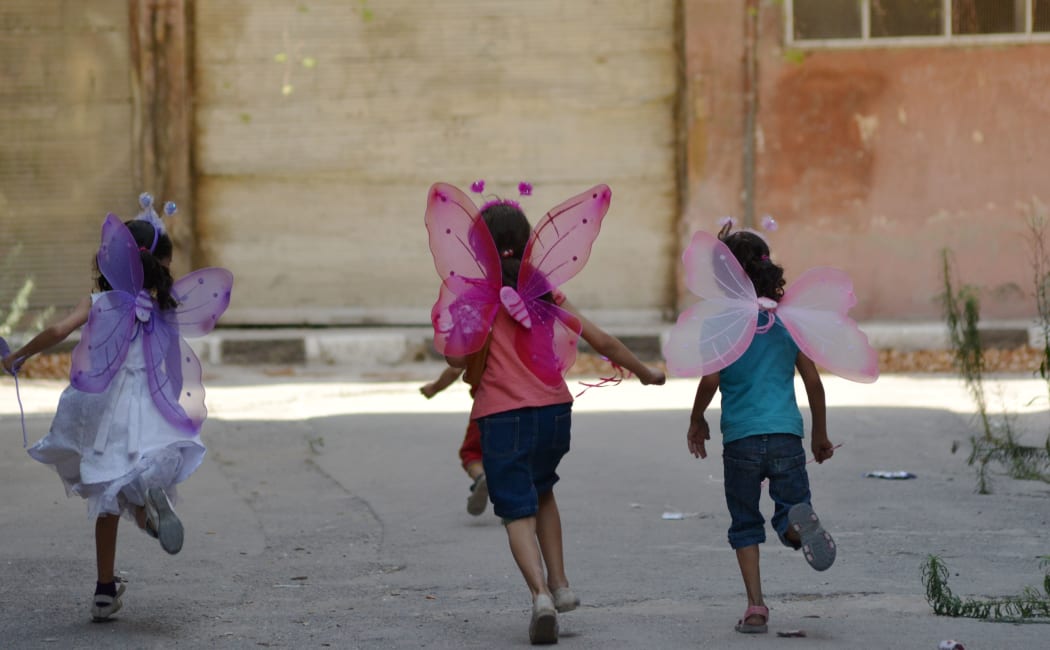
Palestinian girls play in the besieged Yarmouk refugee camp. Photo: AFP

